Climate Changes Your Brain
Extreme heat in Tennessee may have an adverse effect on mental health.
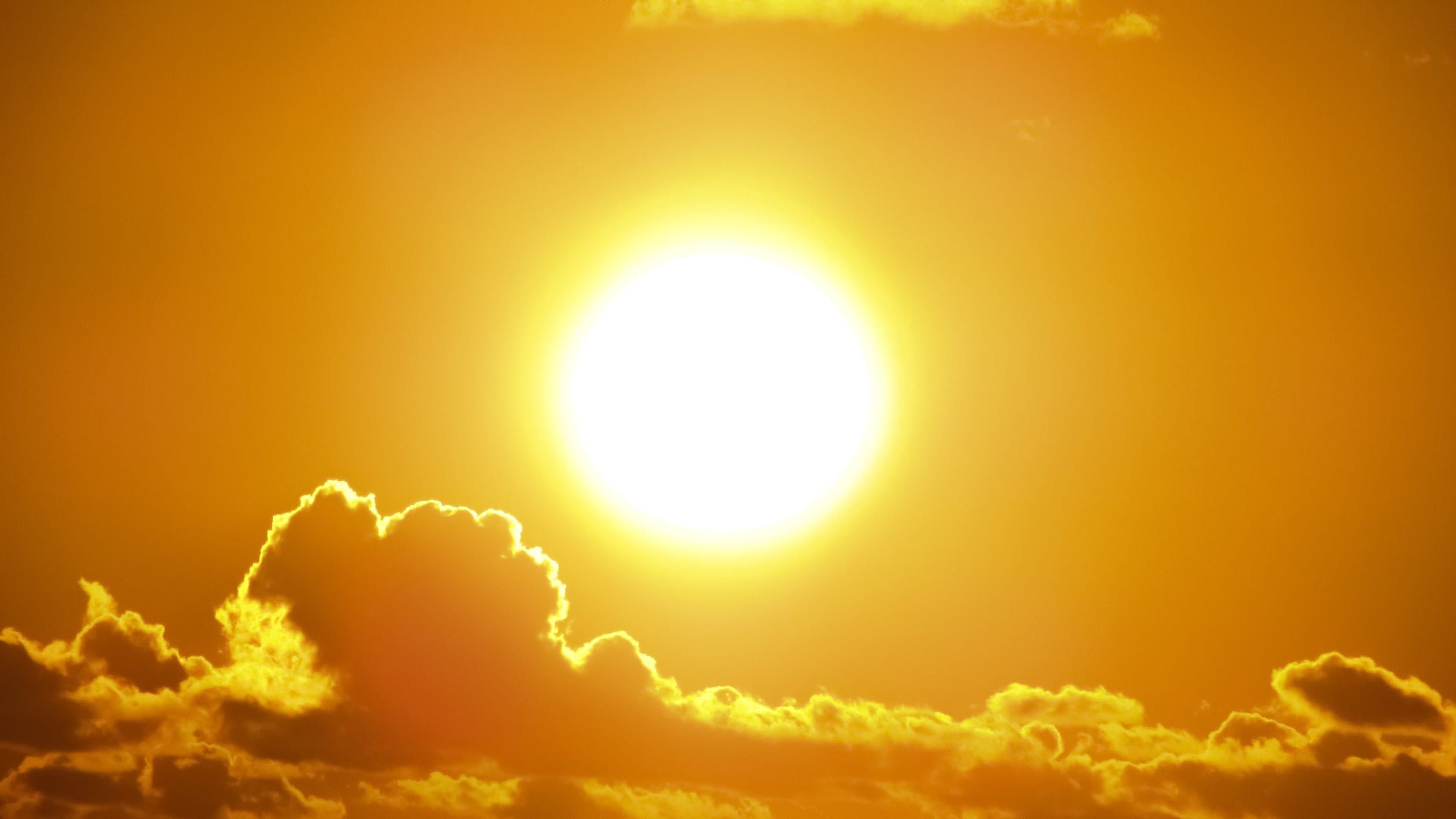
On Nov. 22, 2019, University of Tennessee students rallied and marched down Cumberland Avenue to Mayor Madeline Rogero’s office to ask for a declaration of climate change as a health emergency.
UT students are not alone. In September, 7.6 million people took to the streets in protest against climate change. The World Health Organisation regards climate change as “the greatest threat to global health in the 21st Century”.
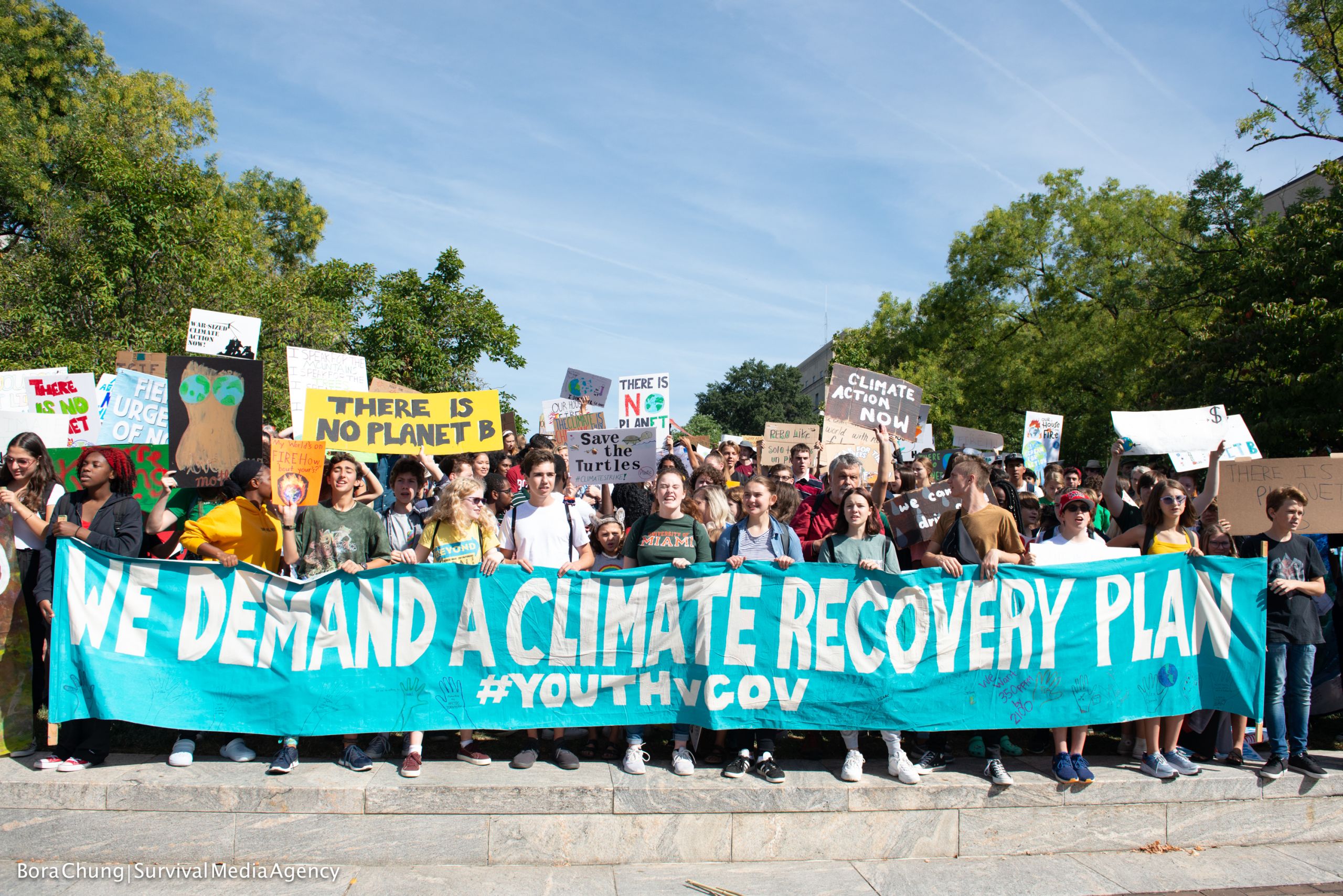
Source: Global Climate Strike
Source: Global Climate Strike
After the great Tennessee flood in May 2010 that left 26 people dead, many people were physically and mentally distraught. “Even though I didn’t lose any loved ones or personal property in this flood, what I have lost, is peace of mind,” Eric Normand, a Middle Tennessee-based writer and musician said in an interview.
Along with destructive storms, increased floods, drought and wildfires, extreme heat is a consequence of climate change and it is affecting mental health.
The NOAA reported that the annual global temperature record has been broken five times since the start of the 21st century. Human-caused climate change has warmed the Earth’s average temperature by about 2 degrees since the late 1800s. Although 2 degrees seems minute, a slight warming of the average temperature leads to a major increase in extreme heat.
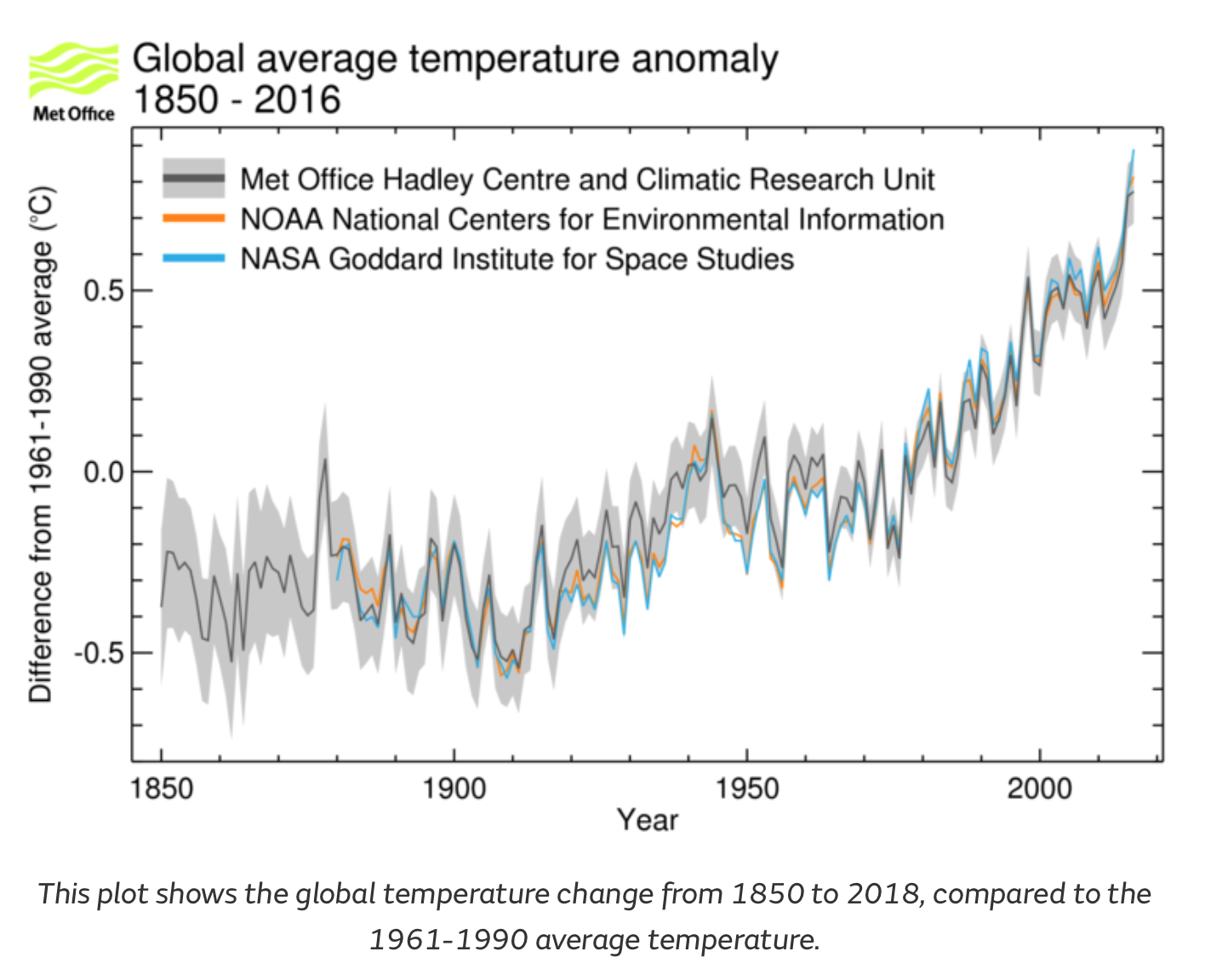
Cities in East Tennessee are getting hotter by the year. October was a record–breaking month for high heat in Knoxville, Chattanooga and Nashville, with scorching temperatures in the 90s. According to the U.S. Global Change Research Program, average annual temperatures in the Southeast are projected to increase by 4 to 9 degrees by 2080.
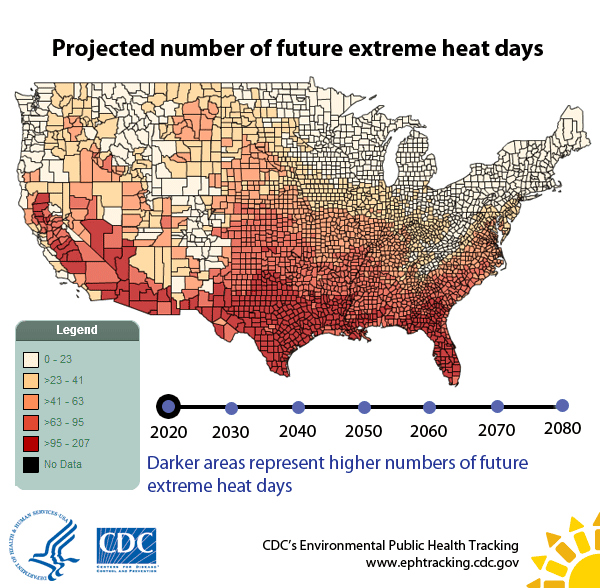
“In the Southeast, heatwaves are likely to become more frequent and intense, hot days are expected to become warmer and the warm season is expected to be longer, exposing individuals in these areas to excessive heat and heat-related illnesses,” Kelsey Ellis, climatologist and geography professor at the University of Tennessee, said.
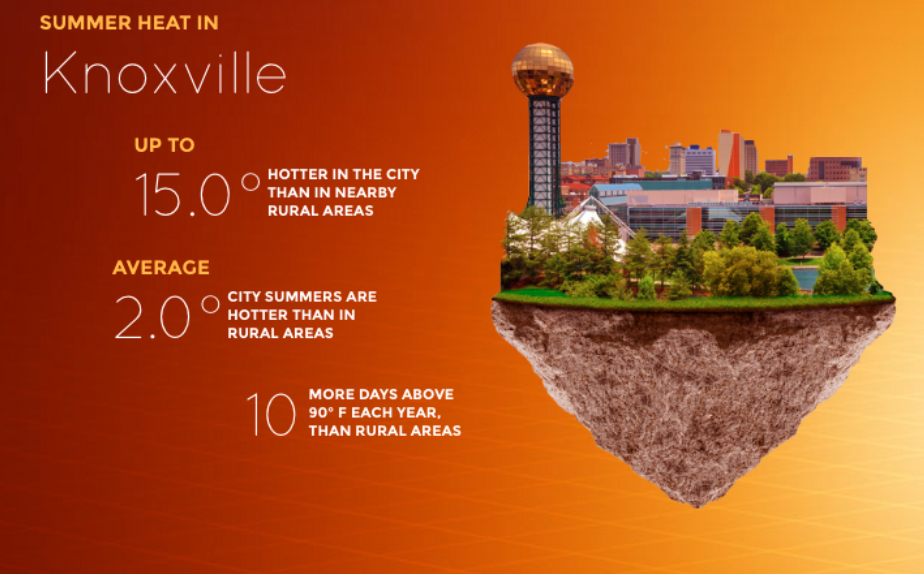
Source: Climate Central
Source: Climate Central
Prolonged, extreme heat is detrimental to humans and can cause heat exhaustion, heat strokes and even potential death. According to the Centers for Disease Control and Prevention, extreme heat now causes more deaths in U.S. cities than all other weather events combined. Because extreme heat does not seem as severe as other natural disasters, people tend not to take it as seriously and then wind up more vulnerable to its effects.
“I find that my mental health is affected by having to find shelter from the heat,” a Knoxville resident said in a Knoxville-based study on heat vulnerabilities conducted by Ellis and Alisa Hass, a geography professor at UT.
“Being outside for extended periods during the hottest part of the year can lead to feeling physically ill from exhaustion and dehydration and being confined inside to escape the heat becomes mentally draining,” the participant said.
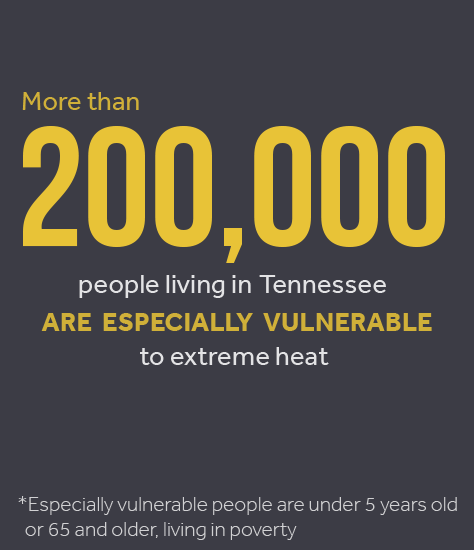
Source: States at Risk
Source: States at Risk
According to the National Center for Atmospheric Research, U.S. residents' exposure to extreme heat is predicted to increase four to six times by mid-century.
“Hot headed” and “blood boiling” are just a few terms that describe the correlation between extreme heat and aggression. Statistics in the article “Quantifying the Influence of Climate on Human Conflict” show that one standard deviation of temperature increase leads to a 4% increase in interpersonal violence and 14% increase in group violence. Not only are people more aggressive towards others, they are violent towards themselves.
Studies suggest that an increase in temperature has a direct relationship to the rate of suicide. Published in Natural Climate Change monthly journal, one study shows suicide rates rising 0.7% in U.S. counties and 2.1% in Mexican municipalities for every 1.8 degree increase in monthly average temperature.
Along with aggression, rising temperatures have an impact on mood, cognition and sleep. Stifling temperatures only worsen insomnia.
Due to the repercussions of mental illness, many people suffering are unemployed or on fixed incomes. Access to resources in a time of extreme heat can be limited for these people who have limited control over their environment. Poverty, substandard housing and homelessness contribute to the vulnerability of extreme heat.
“The ways that climate change plays out is grounded in social justice,” Lisa Mason, associate professor in the UT College of Social Work, said. She’s part of a growing number of health professionals who are starting to look at climate change as a social issue. Social workers are working on the macro-level to shape the policies to determine who is eligible for resources, Mason said. The Knoxville community has developed programs in partnership with public health, social workers and emergency response departments to respond and protect people from heat impacts.
“I find that my mental health is affected by having to find shelter from the heat.”
“When there's a heat wave that comes, how hard is it for you or me or somebody in another community… to turn up the air conditioning and pay for that bill,” Mason explains. One of the most desired resources during heat waves is air conditioning, which is not always easy to access for those living in poverty. “For whom is it going to be a choice of paying for that utility bill versus not having the money to pay for that utility bill to stay cool and safe in the summer and keep their housing and not become homeless.”
Man-made climate change is causing homes to flood, forests to burn and people to suffer and die from the repercussions of extreme heat on their physical and mental health. Many people, especially those with mental illness, are vulnerable to the effects of extreme heat and lack the resources to stay safe during heat waves. It is up to individuals and communities to fight the challenges presented by climate change and advocate for social equality to save those vulnerable lives.


